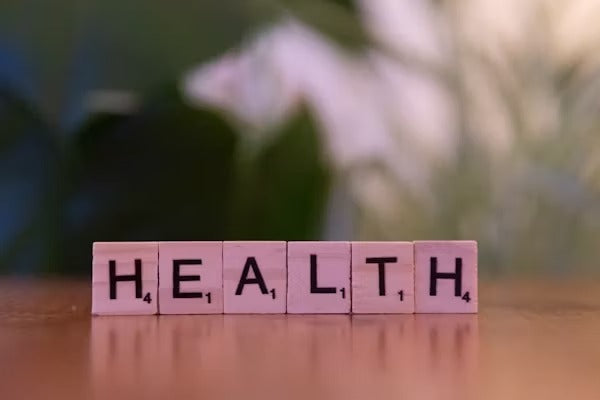Hormones are the messengers behind nearly every major function in your body—metabolism, mood, energy, menstrual cycles, skin, sleep, and even how hungry or calm you feel. So when they’re out of sync, your body will tell you. The problem? It’s not always obvious.
Hormonal imbalance often starts subtly. It doesn’t wave red flags—it whispers. One month it’s bloating. The next, your period comes early… or not at all. You feel “off” but can’t quite explain it.
Let’s break down what hormonal imbalance actually feels like, how to spot it early, and what you can do—naturally and proactively—to bring your body back to balance.
The Body’s First SOS: Early Signs of Hormonal Imbalance
1. Mood Swings, Irritability, or Anxiety
We’ve all had days when we feel “off.” But if emotional rollercoasters become routine—especially before your period—it could be more than stress.
Your hormones, especially estrogen and progesterone, directly affect the brain chemicals serotonin and GABA. These neurotransmitters are essential for staying calm, emotionally resilient, and mentally steady.
When hormone levels dip or fluctuate wildly, it can feel like you’re losing control over your emotions. You might find yourself:
-
Crying at things that normally wouldn’t phase you
-
Snapping over minor issues
-
Feeling anxious without a clear trigger
-
Lacking your usual motivation or drive
This emotional volatility is common in both PCOS and perimenopause. So if your mood feels like a mystery you can’t solve, your hormones might be the missing link.
2. Irregular Periods or Menstrual Discomfort
Think of your menstrual cycle as your body’s monthly report card. When something’s off, your cycle often speaks first.
Hormonal imbalances disrupt the natural rhythm of ovulation and menstruation. Whether it’s estrogen dominance, low progesterone, or thyroid issues, your period might show signs like:
-
Cycles that come too early or too late
-
Months where your period disappears altogether
-
Spotting between cycles
-
Painful cramps that feel worse than usual
-
Bloating and heaviness that lingers
Conditions like PCOS often show up first through cycle irregularity. If your flow feels unpredictable, your hormones are worth investigating.
3. Low Energy and Fatigue
You sleep a full 8 hours, but wake up exhausted. You drink your coffee… and still crash by 3 PM. Sound familiar?
Hormonal fatigue isn’t just about being “tired.” It’s a whole-body depletion that impacts your physical and mental performance. Key culprits include:
-
Low thyroid hormone (hypothyroidism) slowing down metabolism
-
Cortisol imbalance causing energy spikes and crashes
-
Estrogen and progesterone drops affecting your sleep and stamina
You might feel like you're dragging through your day, struggling to focus, or skipping workouts you used to enjoy. This isn’t laziness—it’s biology out of balance.
4. Unexplained Weight Gain or Difficulty Losing Weight
Weight gain isn’t always about calories in vs. calories out. When your hormones are misfiring, your metabolism follows suit.
Estrogen influences fat distribution, particularly around the hips and belly. Cortisol—your stress hormone—encourages fat storage around your midsection. Insulin controls blood sugar and fat storage. And your thyroid? It regulates the speed of your metabolism.
So when you’re hormonally out of sync, even a clean diet and regular exercise might not yield results. Signs include:
-
Weight gain that seems resistant to lifestyle changes
-
Sugar cravings and sudden energy crashes
-
Puffiness or water retention
-
Sluggish digestion and slower fat burn
Balancing your hormones often unlocks sustainable weight shifts without extreme restriction.
5. Skin Issues: Acne, Dryness, or Sensitivity
Your skin is one of the clearest windows into your hormonal health.
Hormonal acne typically shows up as deep, painful pimples along the chin, jawline, and neck. It often flares up in sync with your cycle, especially before your period. This happens due to elevated androgens (male hormones) or imbalanced estrogen-to-progesterone ratios.
Low estrogen may also lead to:
-
Thin, dry, or sensitive skin
-
Increased redness or rosacea
-
Slower wound healing or increased breakouts
-
Itchiness or sensitivity to products that once worked
If your skin has changed suddenly or worsened without a change in your skincare routine, your hormones could be to blame.
6. Sleep Disruptions
Getting restful sleep is not just about bedtime habits—hormones play a central role in whether you drift off, stay asleep, and wake up refreshed.
When cortisol is too high (especially from stress), it keeps your nervous system wired at night. Low progesterone—common in the second half of your cycle—can trigger anxiety and restlessness.
Meanwhile, a drop in estrogen (especially around perimenopause or PMS) can cause:
-
Night sweats
-
Overheating
-
Insomnia or frequent waking
Many women report waking up at 2–4 AM with a racing mind, feeling hot or anxious. This is classic hormonal sleep disruption. And since poor sleep impacts everything from cravings to immunity, it's worth taking seriously.
Many of these symptoms overlap with conditions like:
-
PCOS (Polycystic Ovary Syndrome): Irregular periods, acne, weight gain, mood changes
-
Perimenopause/Menopause: Hot flashes, insomnia, mood shifts, low libido
-
Thyroid Dysfunction: Fatigue, weight gain, hair thinning, low mood
If you’re seeing multiple symptoms, it’s worth investigating your hormone levels through a healthcare provider.
What Causes Hormonal Imbalance in Women?
-
Chronic stress → elevated cortisol disrupts estrogen/progesterone
-
Poor gut health → affects estrogen detox and nutrient absorption
-
Blood sugar instability → spikes insulin, impacts ovaries
-
Overexercising or under-eating → can shut down ovulation
-
Endocrine disruptors → found in plastics, makeup, pesticides
-
Aging → hormonal shifts begin as early as your 30s
The Fix Isn’t One Size Fits All—But It Can Be Natural
While synthetic hormones or birth control may be prescribed, many women prefer a gentler approach, especially at early stages. Nutritional strategies, lifestyle changes, and targeted supplements can support hormonal balance with fewer side effects.
Smart Supplementation with DameHealth
Bio-Resveratrol
A menopause supplement and hormone balance support tool. It mimics estrogen gently (phytoestrogenic action) and helps reduce oxidative stress—helpful in fatigue, skin health, and cycle support.
PCOS Conception Pack
Combines pre-pregnancy support with hormone-balancing antioxidants to support regular cycles, better ovulation, and weight loss in women with PCOS.
These natural hormone balance tablets are ideal for those looking to improve mood, skin, energy, and fertility markers gently and consistently.
Hormone Myths Worth Busting
Myth 1: Hormonal imbalance only happens after 40.
→ Many women in their 20s and 30s experience imbalances due to stress, lifestyle, or PCOS.
Myth 2: Birth control fixes hormones.
→ It may mask symptoms but doesn't resolve root causes. It can even suppress natural hormone production long-term.
Myth 3: Irregular periods are normal.
→ Common doesn’t mean normal. Regular cycles = good hormonal communication.
Myth 4: You need lab tests to spot imbalance.
→ Lab work helps, but your symptoms are valid indicators too.
FAQs
Q: How long does it take to restore hormonal balance naturally?
A: Most women see improvement in 8–12 weeks with consistent support and lifestyle changes.
Q: Are hormone balance tablets safe for long-term use?
A: When plant-based and clean-label like DameHealth’s, yes—though always check with your doctor.
Q: Can resveratrol help with mood and skin too?
A: Yes! It’s anti-inflammatory and antioxidant-rich—great for clearer skin and mood regulation.
Hormonal imbalance isn’t just a “female issue.” It’s a foundational health signal. If you’re noticing changes in your energy, mood, cycle, or body—it’s time to listen Small shifts—nutritional upgrades, stress support, smart supplements—can restore balance from within. Your hormones want to work with you. You just have to give them the right support.





